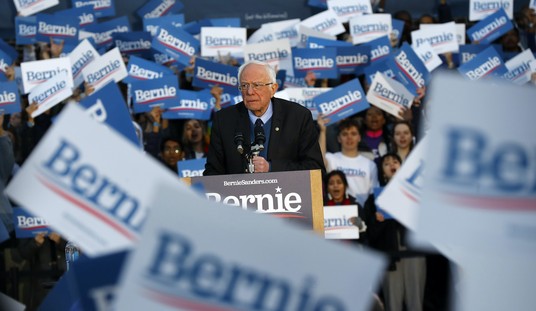Lest we forget that the Obama administration has made it their mission to forcibly change the face of American energy as we know it — most notably by removing the blemish that they’ve deemed the coal industry to be — House Natural Resources Committee Chairman Doc Hastings has an informative op-ed in Politico today that describes the White House’s commitment to making it practically impossible for coal to succeed, all of the lost jobs and costly neighborhood effects be damned.
The nonpartisan U.S. Energy Information Administration has all but confirmed the president’s aggressive war on coal with a report detailing a record number of coal-fired power plants to be closed this year — largely because of burdensome regulations and other compliance costs. Worse, 175 coal-fired power plants are scheduled to be shut down from 2012 to 2016, EIA estimated, requiring 27 gigawatts of electricity — enough to power 27 million homes — to be replaced by more expensive forms of energy.
The shuttering of record numbers of coal-fired power plants threatens thousands of the 555,270 direct and indirect coal-related jobs that help supply America with nearly half of its generated electricity and pay $36 billion in wages.
Highly convenient that the bulk of these new regulations won’t start kicking in until after 2012, but there you have it. Hastings goes on to argue that one of the most specific covert actions by the Obama administration has been their decision to rewrite a coal production regulation known as the 2008 Stream Buffer Zone Rule, which highlights the lengths to which they’re willing to go to flout the free market and accomplish their goals:
The Obama administration discarded a rule that underwent five years of environmental review and public comment; entered into a court agreement with environmental groups to rewrite the rule in an unachievable time frame; spent millions of taxpayer dollars and hired new contractors to do the rewrite; fired the contractors when it leaked that the revision would cost 7,000 jobs; attempted to manipulate data to conceal the true economic impact; and is now hiding its final rule from the public until after the election.
If something else comes along that might have the capacity to phase some coal out of our economy in a cheap, efficient, and more environmentally friendly manner that can grow our economy instead of tank it (cough cough, natural gas), then great, but the Obama administration’s ill-fated attempt to remake the world in their own green self-image and force Americans to purchase part of their utilities from renewable sources was always going to end badly — ’cause that’s just what central planning does.
A Romney presidency, meanwhile, would have the opportunity to roll back part of the oncoming onslaught of regulations, and NBC points out that the coal industry is at least cautiously optimistic that he will do what he can:
According to the Energy Department, there are nearly 1,400 coal-fired power plants with a total of 317 gigawatts of generating capacity. So shutting down 45 gigawatts of coal-fired generation would end about 14 percent of U.S. coal-fired electricity. …
Most industry leaders expect a more benign regulatory environment for coal if Romney wins on Nov. 6, said Kyle Danish, an attorney who specializes in energy policy at the Van Ness Feldman law firm in Washington. …
The Obama administration has attempted to impose tighter restrictions on mining in the Appalachians, including mountaintop removal. “Some of these rules were invalidated in federal district courts, and the Obama administration is appealing those decisions. Most in industry believe a Romney administration is likely to drop the appeals and go in a different direction, relying more on the states to oversee permitting and regulation of mining operations,” Danish said.
The NBC article concludes by positing that the “Romney energy platform has some potential negatives for coal,” i.e., that they would open up for federal lands for natural gas production and leave fracking regulations more up to the states, but I think that’s missing the point. I don’t have an affinity for coal in particular; my only loyalty is to a robust economy that’s the best it can be, because that is what’s going to provide high-paying jobs for the largest number of people, no matter what specific industry those jobs are in. Being kinder to the natural gas industry is only opening up the playing field and allowing for competition — and competition is what leads to innovation, and greater prosperity for all.








Join the conversation as a VIP Member